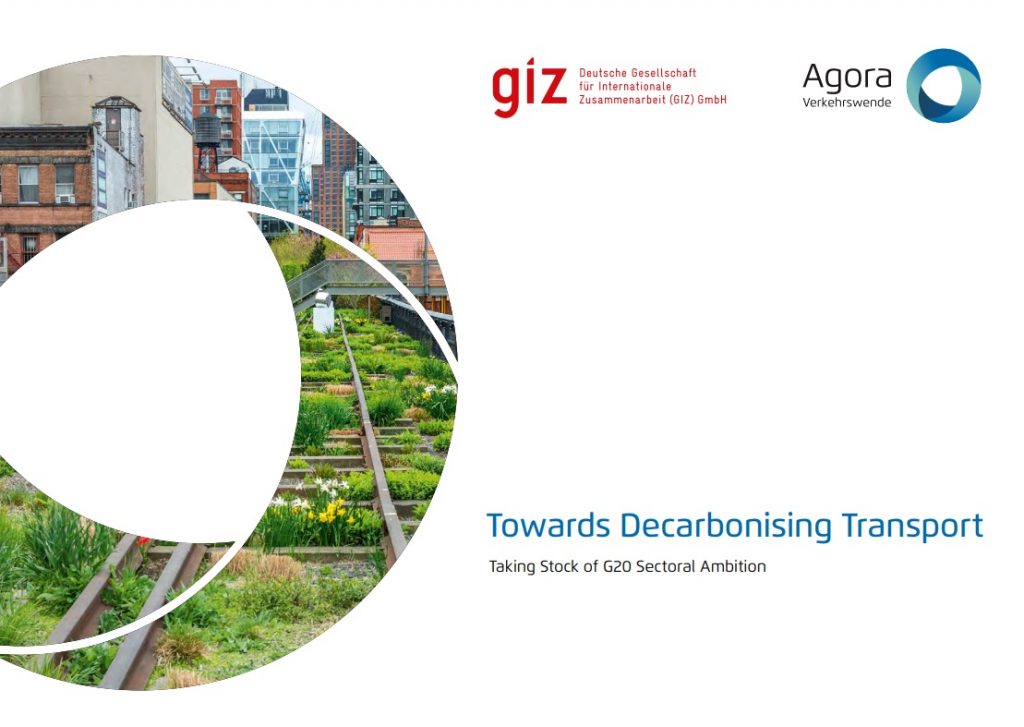Towards Decarbonising Transport
This report summarises the mitigation policies enacted for the transport sector by G20 countries. By providing a snapshot of efforts to decarbonise transport, the aim is to show where more action is needed.


At the UN Climate Change Conference this year1 the nations of the world will meet to advance the aims and ambitions of the Paris Agreement and achieve progress on its implementation guidelines.
G202 countries collectively account for two thirds of the world’s population, but are responsible for more than 80% of current global greenhouse gas (GHG) emissions. The vast majority of these emissions, at about 8 tonnes per capita, are carbon dioxide (CO2) emissions from burning fossil fuels to produce energy. The transport sector currently consumes more than half of global oil demand and accounts for 23% of global energy-related CO2 emissions3, and emissions from the sector continue to grow rapidly. According to the latest Transport Outlook (OECD/ITF 2017a), CO2 emissions could increase by 60% by 2050.
Climate action in transport is therefore a necessity to reach the goals of the Paris Agreement and keep global warming well below 2 degrees centigrade. G20 members bear the greatest responsibility for the global transport sector’s impacts on air quality, climate change and energy consumption – accordingly, they are in the driver’s seat. Although there is strong motivation among G20 members to reduce the climate and health impacts of the transport sector, the level of ambition on carbon abatement still varies significantly between countries. Furthermore, the implementation of measures to achieve stated ambitions in many cases falls short.
In order to highlight the crucial importance of the transport sector in this discussion, the Deutsche Gesellschaft für Internationale Zusammenarbeit (GIZ) and Agora Verkehrswende have compiled this report, which summarises the mitigation policies enacted for the transport sector by G20 countries. By providing a snapshot of efforts to decarbonise transport, we aim to show where more action is needed. Ultimately, we hope this report represents a valuable tool for the climate community to gain a better understanding of the overall status of CO2 mitigation policies in the transport sector.